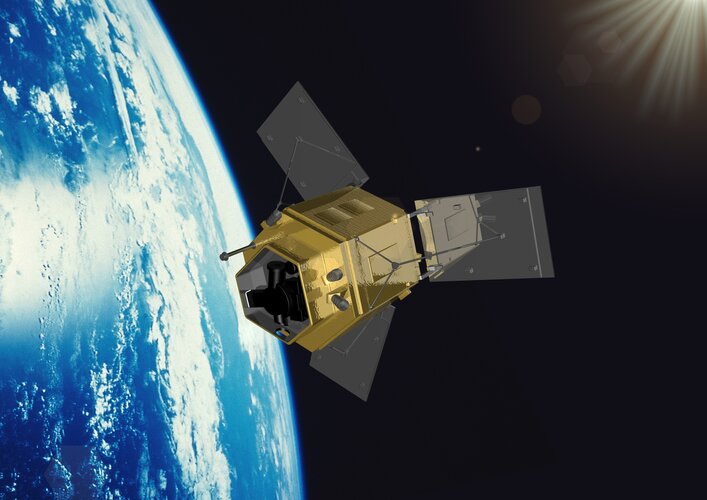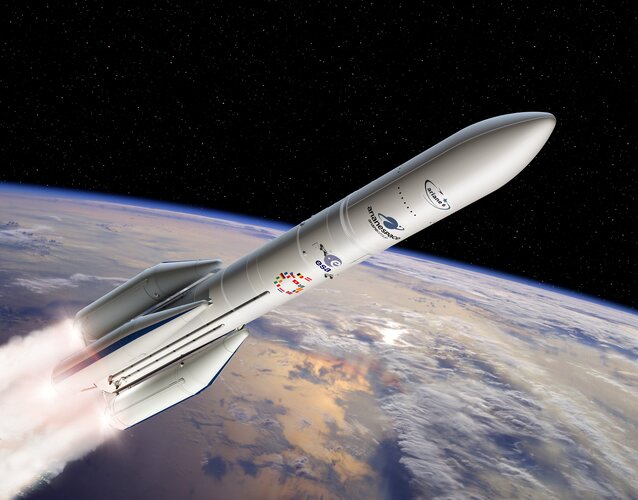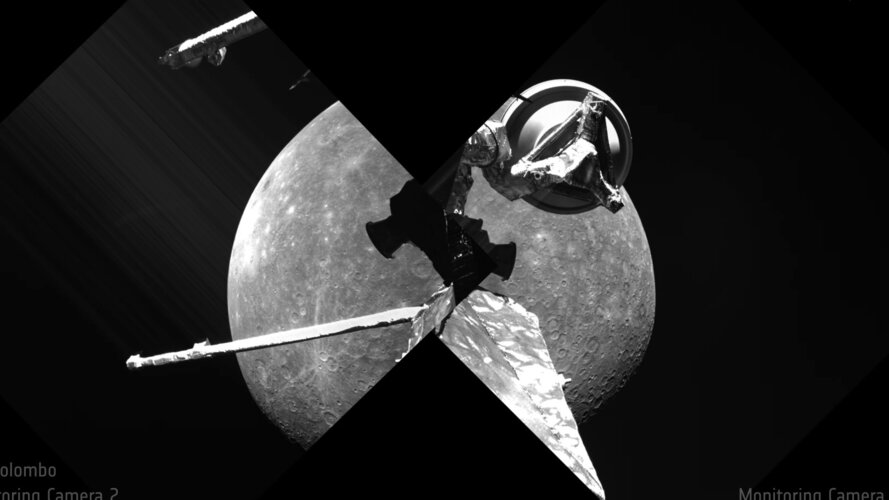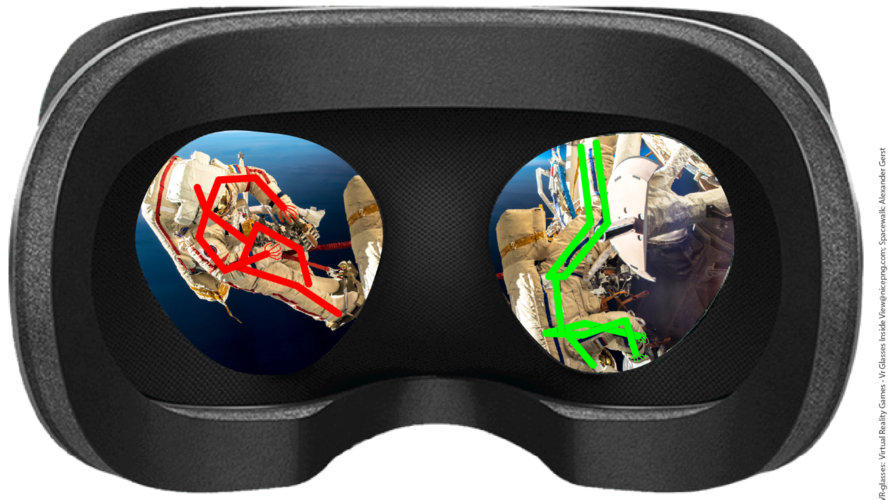
Copernical Team
Virgin Orbit on target for next launch window to open June 29
 Virgin Orbit (Nasdaq: VORB)'s launch system is in place at the Mojave Air and Space Port. The dress rehearsals are complete, and the company remains on track for its upcoming Straight Up launch, with a launch window opening on June 29 at 10 pm PDT.
The launch will support the United States Space Force's STP-S28A mission and carry payloads for the Department of Defense (DOD) Space Test Prog
Virgin Orbit (Nasdaq: VORB)'s launch system is in place at the Mojave Air and Space Port. The dress rehearsals are complete, and the company remains on track for its upcoming Straight Up launch, with a launch window opening on June 29 at 10 pm PDT.
The launch will support the United States Space Force's STP-S28A mission and carry payloads for the Department of Defense (DOD) Space Test Prog CAPSTONE Uses Gravity on Unusual, Efficient Route to the Moon
 A microwave oven-sized CubeSat dubbed CAPSTONE will blaze an untested, unusual yet efficient deep space route to the Moon that NASA is greatly interested in and future spacecraft may want to imitate.
The destination for CAPSTONE - short for the Cislunar Autonomous Positioning System Technology Operations and Navigation Experiment - is a unique lunar orbit intended for?NASA's?Gateway, a mul
A microwave oven-sized CubeSat dubbed CAPSTONE will blaze an untested, unusual yet efficient deep space route to the Moon that NASA is greatly interested in and future spacecraft may want to imitate.
The destination for CAPSTONE - short for the Cislunar Autonomous Positioning System Technology Operations and Navigation Experiment - is a unique lunar orbit intended for?NASA's?Gateway, a mul Rocketlab launches CAPSTONE on lunar mission for NASA
 Rocket Lab USA, Inc. (Nasdaq: RKLB) has launched a satellite to the Moon for NASA from Rocket Lab's Launch Complex 1 on New Zealand's Mahia Peninsula. The launch window opened at 09:50 UTC on June 28th. Designed and built by Tyvak Nano-Satellite Systems, a Terran Orbital Corporation, and owned and operated by Advanced Space on behalf of NASA, the Cislunar Autonomous Positioning System Technology Operations and Navigation Experiment (CAPSTONE) CubeSat will be the first spacecraft to test the Near Rectilinear Halo Orbit (NRHO) around the Moon.
Rocket Lab USA, Inc. (Nasdaq: RKLB) has launched a satellite to the Moon for NASA from Rocket Lab's Launch Complex 1 on New Zealand's Mahia Peninsula. The launch window opened at 09:50 UTC on June 28th. Designed and built by Tyvak Nano-Satellite Systems, a Terran Orbital Corporation, and owned and operated by Advanced Space on behalf of NASA, the Cislunar Autonomous Positioning System Technology Operations and Navigation Experiment (CAPSTONE) CubeSat will be the first spacecraft to test the Near Rectilinear Halo Orbit (NRHO) around the Moon. Contract secures design for ESA’s FORUM satellite

ESA has awarded a contract worth €160 million to Airbus in the UK to build the Earth Explorer FORUM satellite. This exciting new mission will yield unique insight into the planet’s radiation budget and how it is controlled – thereby filling in a critical missing piece of the climate jigsaw.
Short for Far-infrared Outgoing Radiation Understanding and Monitoring, FORUM is ESA’s ninth Earth Explorer mission.
Webb's NIRISS instrument is ready to see cosmos in over 2,000 infrared colors

Ariane 6 central core assembly complete

The central core of a test model of ESA’s new Ariane 6 heavy lift rocket has been assembled for the first time in the purpose-built Launcher Assembly Building at Europe’s Spaceport in French Guiana.
BepiColombo’s second Mercury flyby
 Video:
00:01:06
Video:
00:01:06
A beautiful sequence of 56 images taken by the monitoring cameras on board the ESA/JAXA BepiColombo mission as the spacecraft made its second close flyby of its destination planet Mercury on 23 June 2022.
The compilation includes images from two monitoring cameras (MCAM) onboard the Mercury Transfer Module, which provides black-and-white snapshots at 1024 x 1024 pixel resolution. The MCAMs also capture parts of the spacecraft: MCAM-2 sees the Mercury Planetary Orbiter’s medium-gain antenna and magnetometer boom, while the high-gain antenna is in the MCAM-3 field-of-view.
The image sequences lasted about 15 minutes starting soon after closest approach
ESA brings sci-fi-inspired extended reality to space

Virtual and augmented reality have increasingly been used for fun over the past few years. But in science fiction, these 'extended reality' (or XR) technologies are more than fun – they are actively used in character’s daily lives. Now with seven new projects boosting human-machine interfaces, ESA is aiming to bridge this gap and develop for space the XR applications we are familiar with from science fiction.
NSSA releases report on "United States Space Command: Progress And Opportunities"
 The National Security Space Association (NSSA) has released a report entitled "United States Space Command: Progress and Opportunities". Produced by the Association's Moorman Center for Space Studies, the report notes the importance of the USSPACECOM mission to U.S. national security and economic well-being, describes recent progress of the Command in reaching an "initial operational capability"
The National Security Space Association (NSSA) has released a report entitled "United States Space Command: Progress and Opportunities". Produced by the Association's Moorman Center for Space Studies, the report notes the importance of the USSPACECOM mission to U.S. national security and economic well-being, describes recent progress of the Command in reaching an "initial operational capability" NASA blasts off from Australian Outback in 'historic' launch
 NASA's first-ever launch from a commercial site outside of the United States blasted off from Australia's Outback late Sunday, in a "historic" moment for the country's space industry.
In the first of three planned launches from the Arnhem Space Centre, the rocket, carrying technology likened to a "mini Hubble" telescope, lifted off - blasted about 350 kilometres (218 miles) into the night s
NASA's first-ever launch from a commercial site outside of the United States blasted off from Australia's Outback late Sunday, in a "historic" moment for the country's space industry.
In the first of three planned launches from the Arnhem Space Centre, the rocket, carrying technology likened to a "mini Hubble" telescope, lifted off - blasted about 350 kilometres (218 miles) into the night s 
